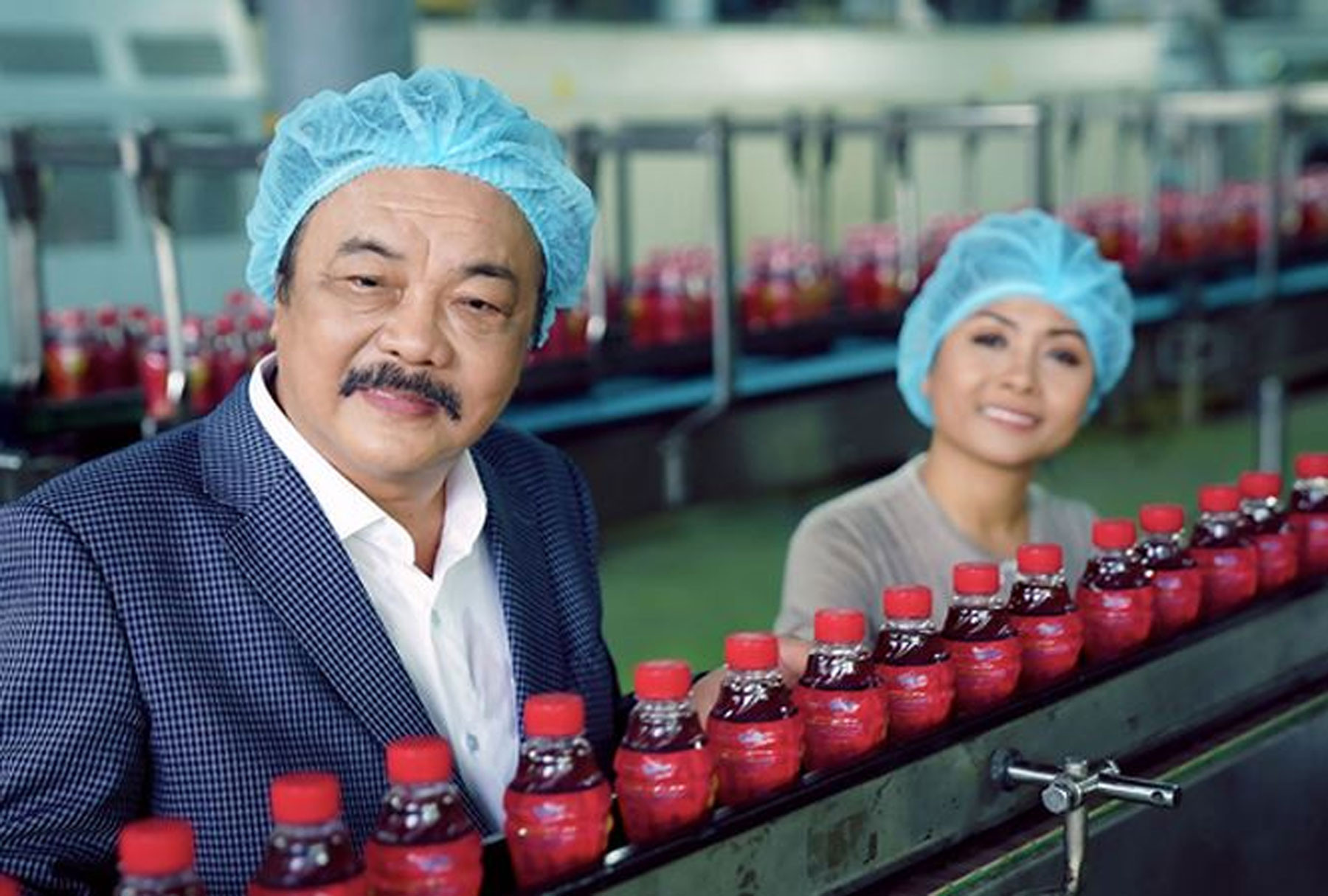
After many years of competition, the Vietnamese bottled drink market has taken shape. The dominant enterprises are three foreign invested names, Suntory Pepsico, Coca-Cola, URC, and two domestic names – Tan Hiep Phat and Masan Group.
According to Virac, a market analysis firm, the Vietnamese beverage market had five of the largest enterprises holding 57 percent of market share in 2022. Pepsico maintained its leading position in drinks (in value), especially in carbonated drinks, fruit juices, bottled water and sports drinks.
The second position in 2022 belonged to Coca-Cola Vietnam which had advantages in carbonated drinks, bottled water and fruit juices.
Tan Hiep Phat and URC Vietnam (from the Philippines) led in instant tea, while Red Bull from Thailand was No 1 in energy drinks.
According to Kantar, the Covid-19 pandemic had a big impact on sales of drinks in Vietnam in 2021, with local consumption falling sharply throughout the year. In 2022, when the pandemic impact began to weaken, the drink output increased by 7 percent in four large cities and 10 percent in rural areas.
In the energy drink market segment, production developed rapidly with market value estimated at VND18 trillion in 2022.
Another driving force for the energy drink market comes from increased demand from workers in production, agriculture and transportation.
Red Bull Vietnam leads the market, followed by Suntory Pepsico and Tan Hiep Phat. Masan joined the market in 2015. With Wake-up 247 energy drink with coffee flavor, it has become the fourth largest brand in the market.
Tan Hiep Phat scandal
Vietnam Construction Securities (VNCS) believes that a scandal involving the leadership of Tan Hiep Phat will affect the face of the beverage market.
“When Tan Hiep Phat lacks leaders and its production capacity is affected, the company is likely to undergo a merged or be taken over. The market share of the domestic company with the next largest market share, Masan, will increase,” said a representative of VNCS.
The field of food, beverage and drinkables also includes dairy products and nutritious drinks. Strong rivals in the domestic market are Vinamilk and Quang Ngai Sugar (QNS).
“Not only Masan, which is likely to rise, but Vinamilk and QNS will also be able to jump into the beverage market segment to occupy the gap that Tan Hiep Phat may leave behind if the situation becomes more serious,” he said.
Tran Thi Khanh Hien from VnDirect Securities said the competition in the beverage market is stiff, and the enterprises which have products similar to Tan Hiep Phat’s such as URC will see direct benefits immediately. Meanwhile, other manufacturers will need more time to jump on the bandwagon.
In recent years, Vinacafe Bien Hoa (VCF), a subsidiary of Masan Beverage (belonging to Masan Group), has competed with Red Bull from Thailand in the energy drink market segment.
After 12 years as a subsidiary at Masan, VCF has ‘won big’ with energy drinks and coffee. The strong rise of the products has weakened the dominance of the Thai energy drink and other brands of PepsiCo and Number 1 Tan Hiep Phat.
In the entire drink market, instant tea, carbonated drinks, bottled water, coffee and energy drinks are the products accounting for the largest market shares.
Masan is competing in three largest market segments, namely energy drink, bottled water and coffee.
Regarding bottled water, according to Masan, the market was valued at VND6.5 trillion in 2022 and is predicted to see a two-digit growth rate in the short and medium term. The reason is that the quality of water sources is declining in some regions, thus leading to sharp increase in the demand for clean and safe drinking water.
Masan began joining the field by buying two bottled water brands – Vinh Hao and Quang Hanh. Over the past two years, it has built high-end natural water brand ‘Vivant’.
Vinamilk may expand its business to the beverage industry.
Quang Ngai Sugar, well-known for Dung Quat Beer, Vinasoy and Thach Bich natural water, may also join the market.
According to the Vietnam Beer, Alcohol and Beverage Association (VBABA), Vietnam’s beverage market has more potential than other markets. Vietnam's consumption per capita is still low, only about 50 percent of the world’s average level.
Manh Ha